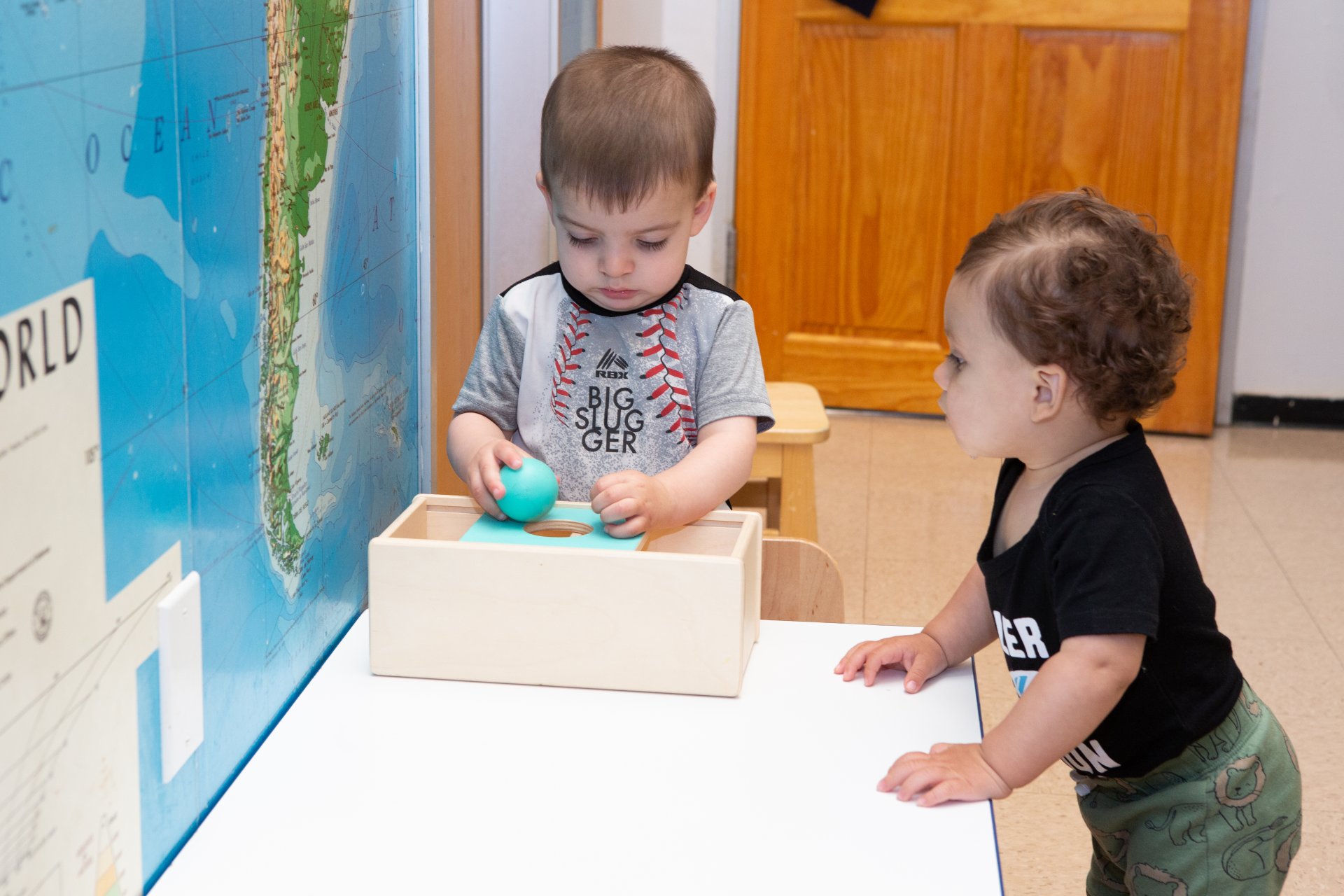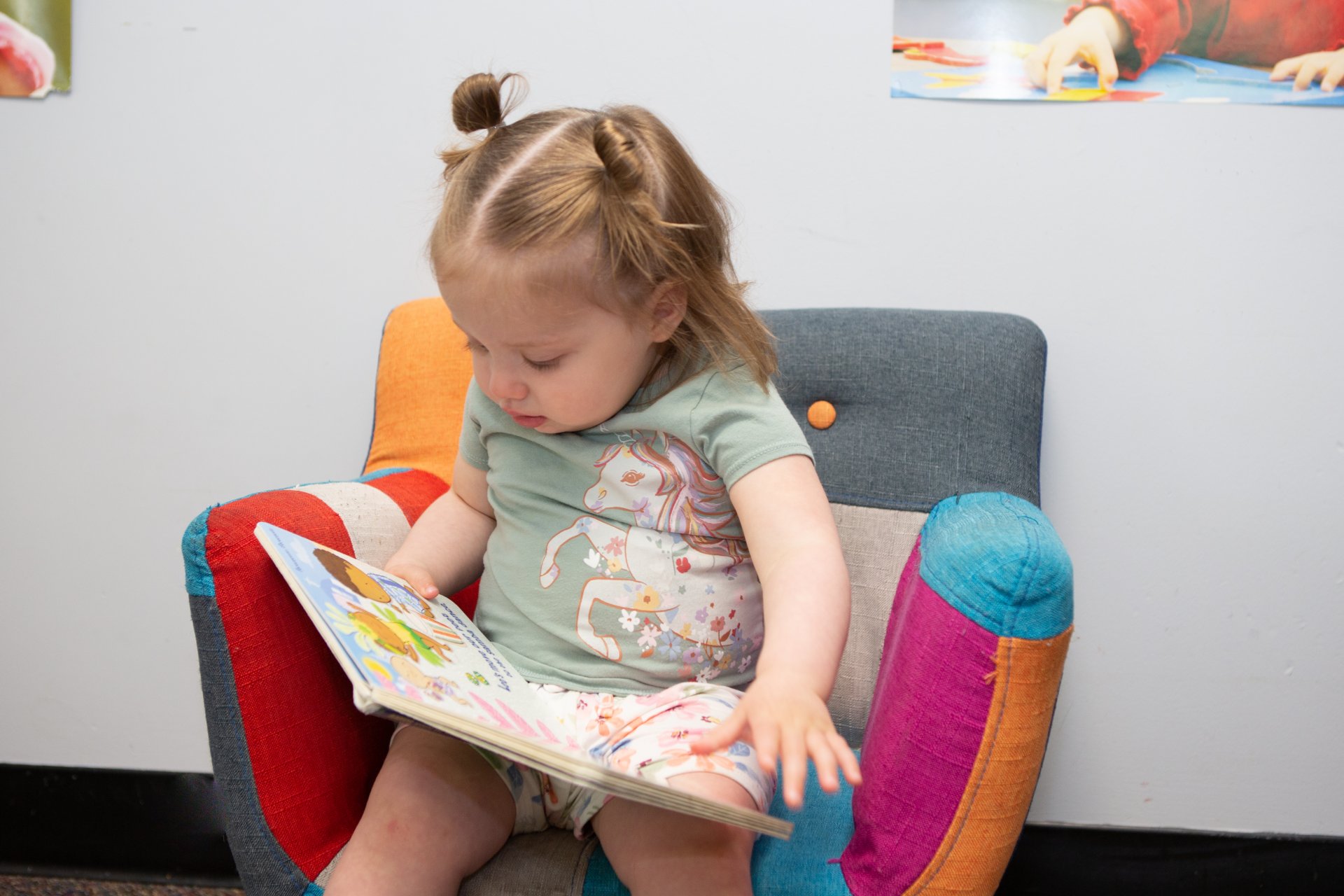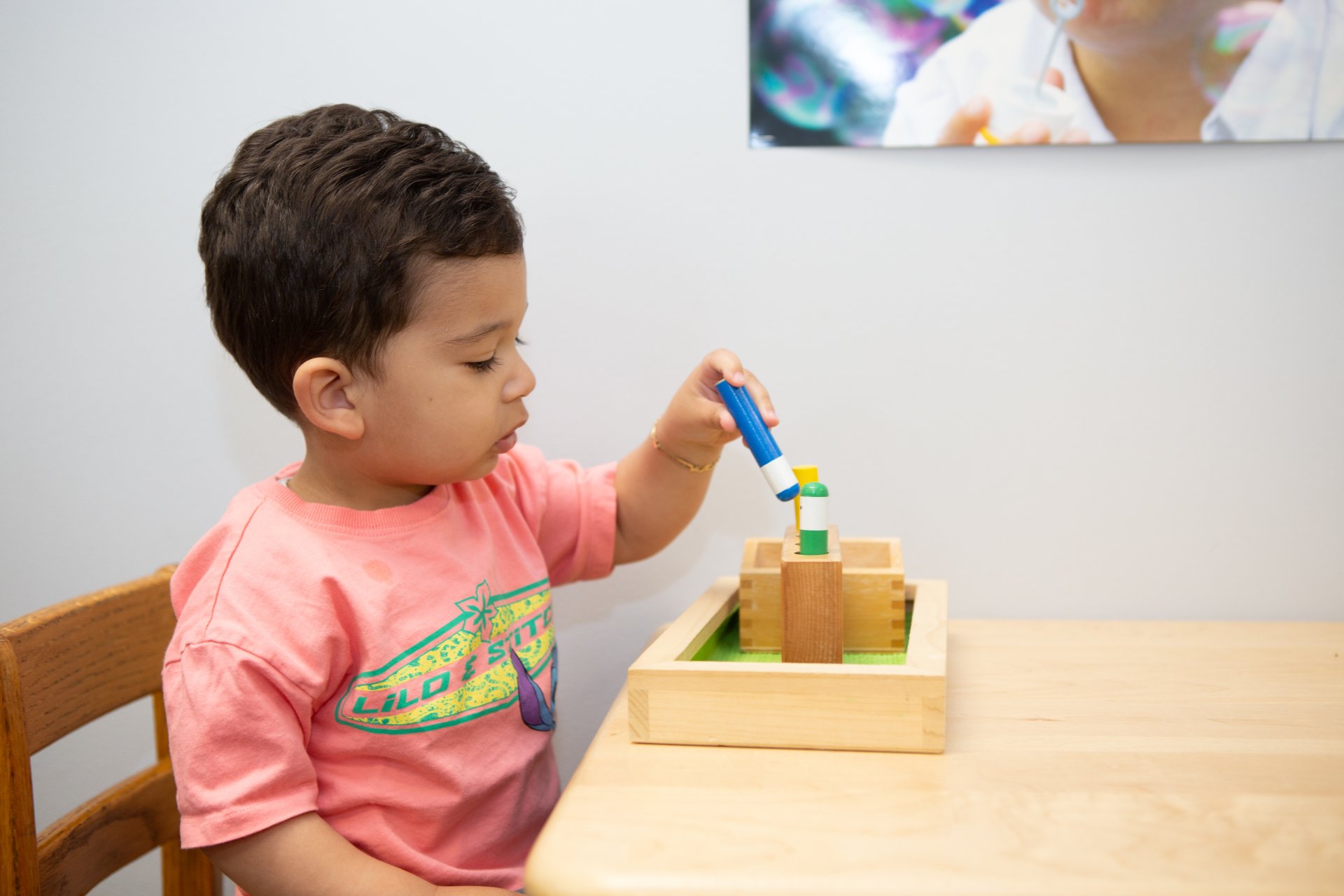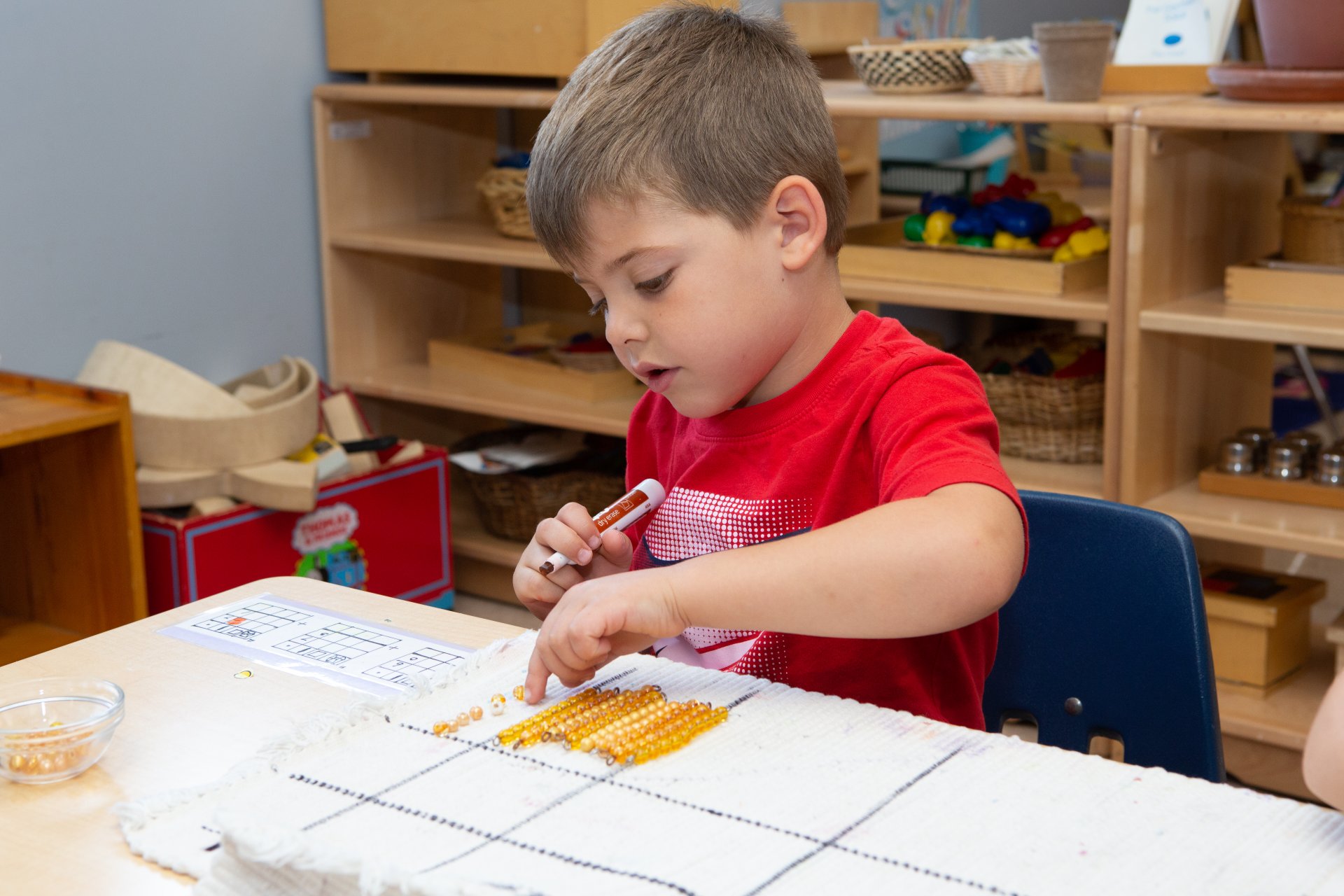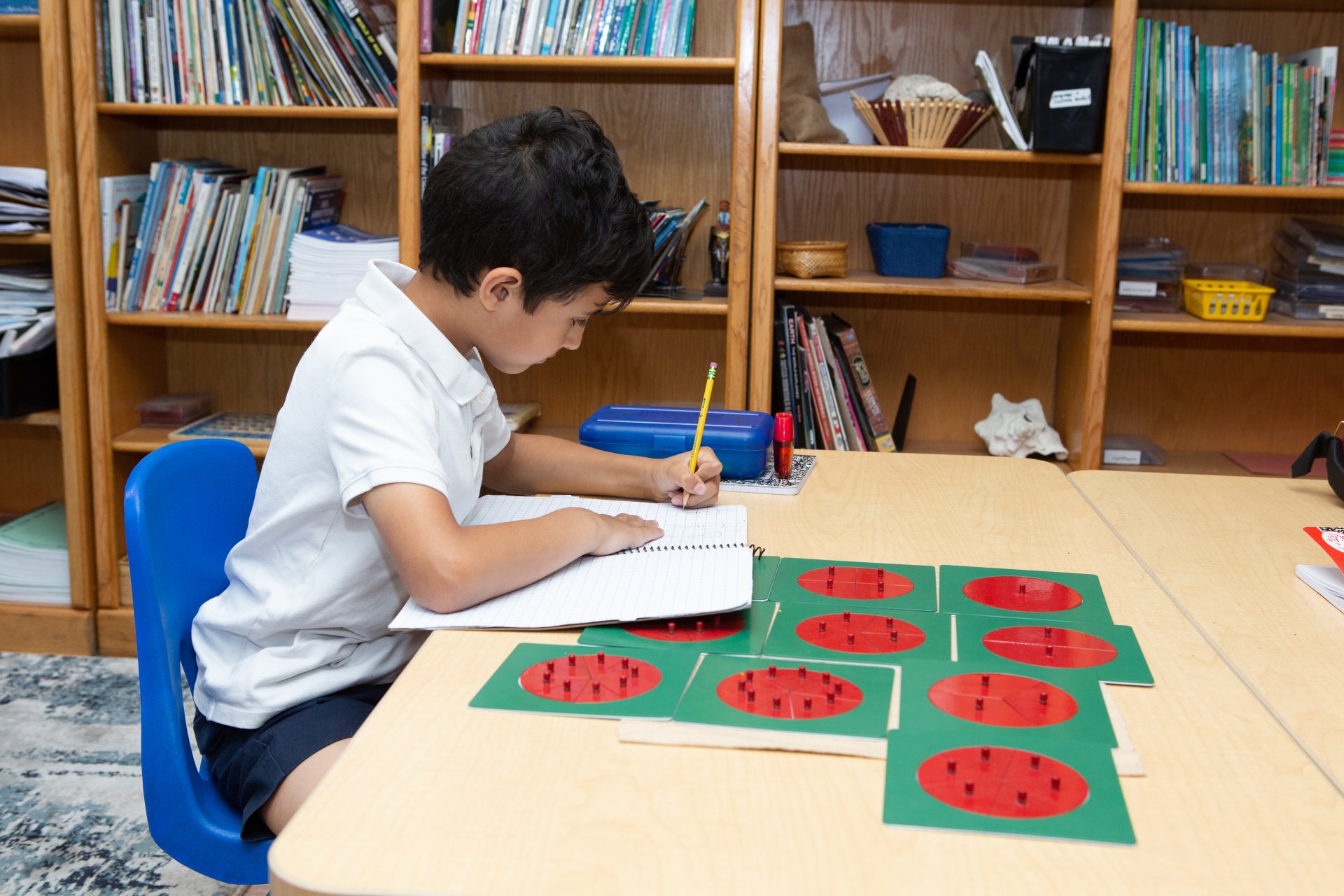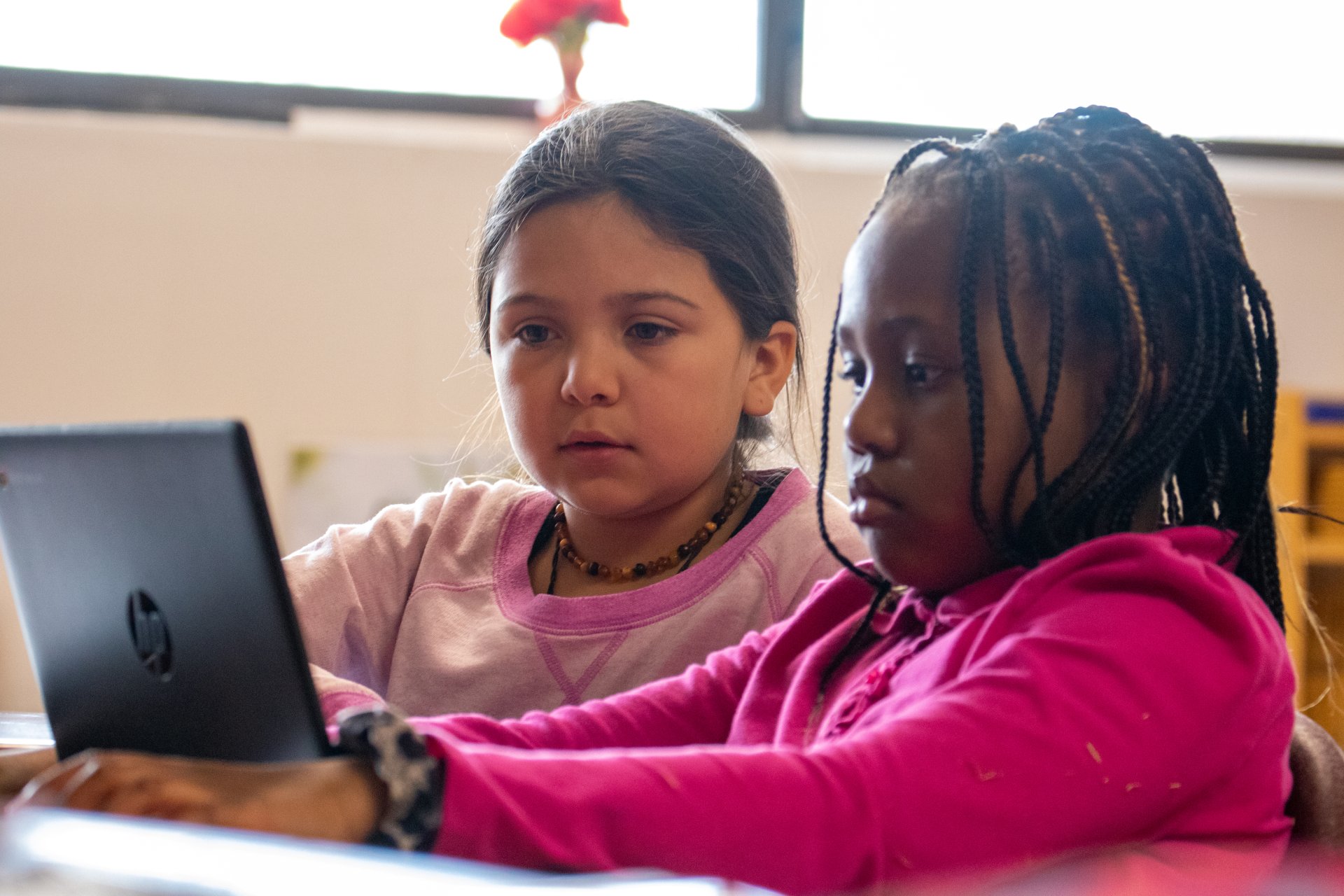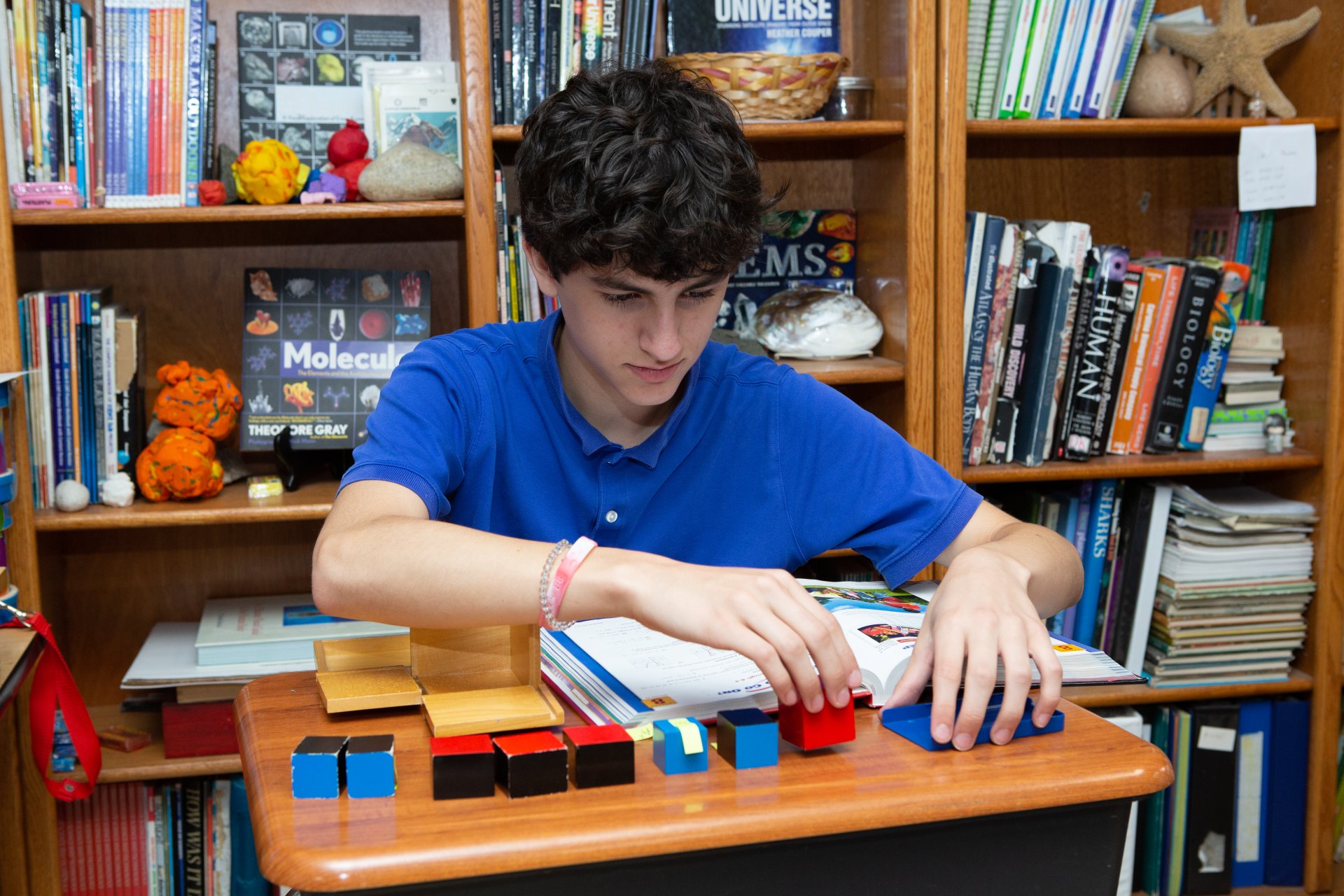What is a Montessori Education?
At Hudson Country Montessori in New Rochelle and Danbury, we nurture each child’s natural curiosity and independence through the Montessori method. In our thoughtfully prepared classrooms, children engage with hands-on activities at their own pace—often exploring concepts beyond their grade level—while developing critical thinking, social skills, and emotional growth. Guided by experienced Montessori-trained teachers, our programs cultivate confident, joyful learners who develop a lifelong love of discovery and a strong foundation for future academic success.
The Montessori approach, founded by Dr. Maria Montessori, emphasizes self-directed, hands-on learning in a carefully prepared environment. It highlights the importance of trained teachers, mixed-age classrooms, and individualized lessons that foster independence, concentration, and a love of learning. This philosophy integrates academic, social, and character development, with progress measured through observation and personal growth rather than traditional grades.
Read on to learn more about Montessori education and how it can benefit your child. We invite you to schedule a tour to see firsthand how Hudson Country Montessori brings this philosophy to life.
"The absorption of the environment is an intellectual activity. It is a psychic necessity that the child explores the environment; it satisfies his spirit. After he has had the satisfaction of observing one thing that interests him, he goes on until he is attracted by something else. In this way the child can walk for miles."
—Dr. Maria Montessori, MD
A BRIEF BIOGRAPHY OF DR. MARIA MONTESSORI, MD
Maria Montessori was born in Italy in 1870. In her work at the University of Rome’s psychiatric clinic, Dr. Montessori developed an interest in the treatment of children and for several years wrote and spoke on their behalf. At age twenty-eight, she became the director of a school for mentally-disabled children. After two years under her guidance, these children, who formerly had been considered uneducable, took a school examination along with normal children and passed successfully. Educators called Dr. Montessori a miracle worker. What was her response? If mentally disabled children could be brought to the level of normal children, Dr. Montessori wanted to study the potential of “normal” children. She went back to school to study anthropology and psychology and finally, in 1907, was asked to take charge of fifty children from the dirty, desolate streets of the San Lorenz slum in the city of Rome.
Like others I had believed that it was necessary to encourage a child by means of some exterior reward that would flatter his baser sentiments, such as gluttony, vanity, or self-love, in order to foster in him a spirit of work and peace. And I was astonished when I learned that a child who is permitted to educate himself really gives up these lower instincts. I then urged the teachers to cease handing out the ordinary prizes and punishments, which were no longer suited to our children, and to confine themselves to directing them gently in their work.
Dr. Montessori was then invited to set up a classroom at the Panama-Pacific International Exposition in San Francisco so that more interested people could observe her methods. A room was built with a glass wall behind which spectators sat and watched the children. Twenty-one children, all completely new to a Montessori environment, attended for four months. The observation seats were filled every day and at noon, when the children served lunch to their classmates and washed up afterwards, there was standing room only in the audience. The two gold medals awarded for education at the Panama-Pacific International Exposition both went to the Montessori class.
After W.W.II Dr. Montessori’s concern with education for peace intensified and she was twice nominated for the Nobel Peace Prize. She instituted the study of Cosmic Education for the child from six to twelve years of age, since she could see that in meeting the needs of the child, the needs of the world would also be met. “Cosmic Education” is the child’s gradual discovery, throughout the whole of childhood, of the interrelatedness of all things on earth, in the past, in the present, and in the future
Invited to the USA by Alexander Graham Bell, Thomas Edison, and others, Dr. Montessori made an appearance at Carnegie Hall in New York in 1915. The following is from a 1913 letter from A. Graham Bell:
Dear Dr. Montessori,
On behalf of the Montessori Educational Association of America I have the honor to inform you that we have elected you as its first Honorary member and to express to you in this way our deep appreciation of your great work for humanity.
—Alexander Graham Bell, 1913
"When the children had completed an absorbing bit of work, they appeared rested and deeply pleased. It almost seemed as if a road had opened up within their souls that led to all their latent powers, revealing the better part of themselves. They exhibited a great affability to everyone, put themselves out to help others and seemed full of good will." —Dr. Maria Montessori, MD
MONTESSORI TEACHERS
The most important consideration in deciding to set up a Montessori class is the teacher. A non-Montessori-trained teacher can no more be expected to teach “Montessori” than a biologist could be expected to teach French. Using the Montessori approach to teach is extremely challenging, but equally exciting and rewarding.
Montessori schools have proven successful all over the world, with all kinds of children (blind, gifted, learning disabled, wealthy, poor, etc.) and in many different environments (from refugee camps and slums to elegant schools in beautiful private homes).
There are many kinds of Montessori teacher training experiences, from distance or correspondence courses (useful for parents and teachers who are interested in an introduction to Montessori, but usually not for a teacher in charge of a whole class of children) to graduate school programs.
The following specific elements of Montessori philosophy that one might find in a Montessori class are based on the assumption that the teacher has had the most exacting Montessori teacher training course available like our teachers here at Hudson Country.
SPECIFIC ELEMENTS OF MONTESSORI PHILOSOPHY ON WHICH THE EDUCATIONAL METHOD IS BASED
Multi-aged Grouping, based on Periods of Development:
Children are grouped in three or six-year spans and have the same teacher for this period.
The first group is called the “Nido” and consists of children in necessary daycare for working parents. This is age 0-1, or “until walking”.
The second group is known as the “Infant Community” and is from around one year to age 2-3.
The third group is the “casa dei bambini” and is from 2.5-6 or 3-6, depending on the training of the teacher.
The fourth group is from 6-12, a larger age span because the children for this 6 years exhibit the same tendencies and learning habits. The emotional and physical growth is steady and the intellectual work strong. The 6 year old learns from and is inspired by children much older, and the teaching is done by older to younger as well as younger to older. This large age span helps to avoid the tendency of some teachers to over-schedule and over-direct students who need ever more freedom of time-planning and research. Sometimes this age group is divided into 6-9 ad 9-12, but this is a new development and still questioned by many.
The fifth group is the 12-15 which is, at least in the West, a more emotional time with less ability to focus on intellectual work. Dr. Montessori called this time the Erdkinder CHildren, and proposed a farm school with real work close to the earth.
The high school years are a time of much more intellectual work, but with a different kind of child who has been through years of critical thinking, caring for the earth and other people, and independent research.
The Human Tendencies:
The practical application of the Montessori method is based on human tendencies— to explore, move, share with a group, to be independent and make decisions, create order, develop self-control, abstract ideas from experience, use the creative imagination, work hard, repeat, concentrate, and perfect one’s efforts.
The Process of Learning:
There are three stages of learning:
Stage 1
Introduction to a concept by means of a lecture, lesson, something read in a book, etc.
Stage 2
Processing the information, developing an understanding of the concept through work, experimentation, creation.
Stage 3
“Knowing”, to possessing an understanding of, demonstrated by the ability to pass a test with confidence, to teach another, or to express with ease.
Indirect Preparation:
The steps of learning any concept are analyzed by the adult and are systematically offered to the child. A child is always learning something that is indirectly preparing him to learn something else, making education a joyful discovery instead of drudgery.
The Prepared Environment:
Since the child learns to glean information from many sources, instead of being handed it by the teacher, it is the role of the teacher to prepare and continue to adapt the environment, to link the child to it through well-thought-out lessons, and to facilitate the child’s exploration and creativity. The Prepared Environment is essential to the success of Montessori. There must be just the right amount of educational materials to allow for the work of the child. However, one thing that has become very obvious in our materialistic society in the west, is that TOO MUCH is worse than TOO LITTLE. The basic collection of didactic materials (such as that approved by the materials committee of AMI, The Association Montessori International) has been thoroughly tested over many years and has been shown to engage the children as much today as it has, as much in the USA as in other countries. Therefore it is very important to only supplement these materials with essential books and materials that are chosen only by an experienced teacher. The Michael Olaf Company is a well-known source for these tested supplementary books and materials. Instead of constantly adding to their collection of products offered, they continually refine and reduce their list, based on feedback from master teachers and Montessori teacher trainers.
Observation:
Scientific observations of the child’s development are constantly carried out and recorded by the teacher. These observations are made on the level of concentration of each child, the introduction to and mastery of each piece of material, the social development, physical health, etc. on.
Work Centers:
The environment is arranged according to subject area, and children are always free to move around the room, and to continue to work on a piece of material with no time limit.
Teaching Method:
There are no text books, and seldom will two or more children be studying the same thing at the same time. Children learn directly from the environment, and from other children—rather than from the teacher. The teacher is trained to teach one child at a time, with a few small groups and almost no lessons given to the whole class. She is facile in the basic lessons of math, language, the arts and sciences, and in guiding a child’s research and exploration, capitalizing on interests and excitement about a subject. Large groups occur only in the beginning of a new class, or in the beginning of the school year, and are phased out as the children gain independence. The child is scientifically observed, observations recorded and studied by the teacher. Children learn from what they are studying individually, but also from the amazing variety of work that is going on around them during the day.
Basic Lessons:
A well-trained Montessori teacher spends a lot of time during training practicing the many basic lessons with materials in all areas. She/he must pass difficult written and oral exams on these lessons in order to be certified. She is trained to recognize a child’s readiness—according to age, ability, and interest—for a specific lesson, and is prepared to guide individual progress. Although the teacher plans lessons for each child for each day, she will bow to the interests of a child following a passion.
Areas of Study Linked:
All subjects are interwoven; history, art, music, math, astronomy, biology, geology, physics, and chemistry are not isolated from each other and a child studies them in any order he chooses, moving through all in a unique way for each child. At any one time in a day all subjects—math, language, science, history, geography, art, music, etc.—are being studied, at all levels.
The Schedule:
There is at least one 3-hour period of uninterrupted, work time each day, not broken up by required group lessons or lessons by specialists. Adults and children respect concentration and do not interrupt someone who is busy at a task. Groups form spontaneously but not on a predictable schedule. Specialists are available at times but no child is asked to interrupt a self-initiated project to attend these lessons.
Assessment:
There are no grades, or other forms of reward or punishment, subtle or overt. Assessment is by portfolio and the teacher’s observation and record keeping. The real test of whether or not the system is working lies in the accomplishment and behavior of the children, their happiness, maturity, kindness, and love of learning, concentration, and work.
Learning Styles:
All intelligences and styles of learning—musical, bodily-kinesthetic, spatial, interpersonal, intrapersonal, intuitive, natural, and the traditional linguistic and logical-mathematical—are nurtured and respected.
Character Education:
Opportunities for the valorization of the personality is considered at least as important as academic education. Children are given the opportunity to take care of themselves, each other, and the environment—gardening, cooking, building, moving gracefully, speaking politely, doing social work in the community, etc.
The Results of learning in this way:
In looking at the results one must be sure they are judging a class run by a fully trained teacher. Using Montessori without this training will not have the same results. When the environment meets all of the needs of children they become, without any manipulation by the adult, physically healthy, mentally and psychologically fulfilled, extremely well-educated, and brimming over with joy and kindness toward each other.
At Hudson Country Montessori, we bring Dr. Montessori’s philosophy to life every day. Your child is encouraged to observe, explore, and grow at their own pace, while receiving guidance, challenge, and support from trained Montessori educators. The goal is simple: to help your child develop independence, confidence, and a lifelong love of learning—preparing them for success in school, life, and beyond.
See how Hudson can engage and challenge your child and schedule a tour to experience it firsthand.

